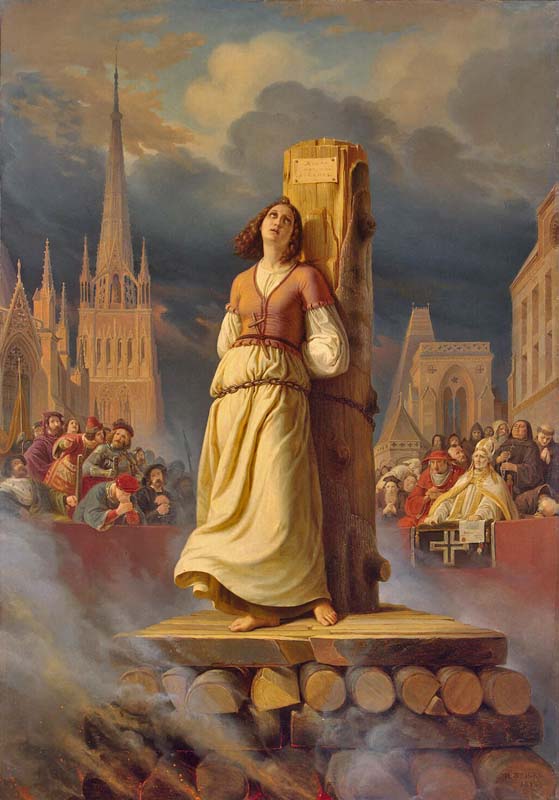I was told not just to read books but to look at “religious lives.” Receiving an honorary degree from a small Catholic liberal arts college, I spoke about Joan of Arc. She had the most well-documented life of anyone in history up to her time. We still have the records from her two trials. She had been convicted of heresy and burned at the stake at the age of nineteen as a result of a trial rigged by her English captors. Some years after her death, a new trial was held, which exonerated her. Both trials took evidence from people who had known her since childhood. In the twentieth century, she was canonized.
“Lord, what can I learn from Joan of Arc?”
Think of Joan on the stake. What are her feelings?
This is what came to me: “Glory to God, blessed savior and lord, redeemer, I love God and am happy to sacrifice all for Him; a feeling of joy and triumph over this world, a rapture and sense of rising to heaven, to join God, to be received and welcomed by a chorus of angels; a peace, calm, inner togetherness, centeredness, kindness to mankind, to their suffering, to their burden of sin, smiling also in triumph. They ‘know not what they do’ to their own souls! They do not know they are the losers. They are the ‘fools’ who do not know what’s really going on. Radiant love sweeping out over the world, embracing the world, as soul-like awareness of the pain of the body and its frailty and vulnerability and impermanence, a deep understanding of the nature of reality, an immersion in the really real, a closing of the old eyes and opening of the new ones, a succumbing, a resignation, a withdrawal.”

